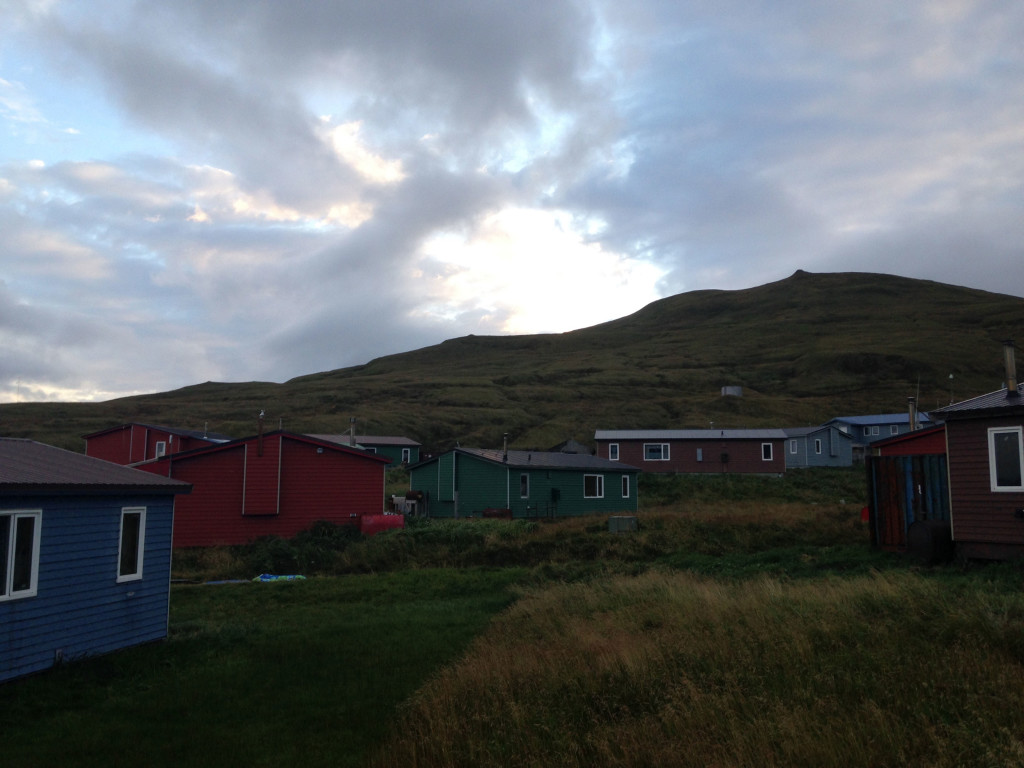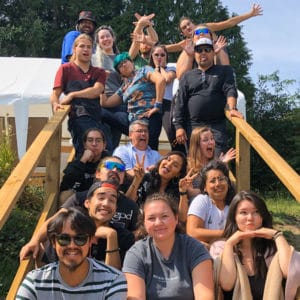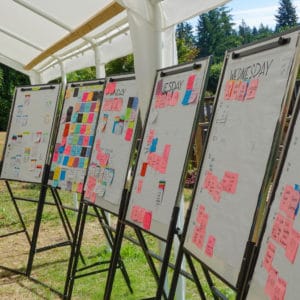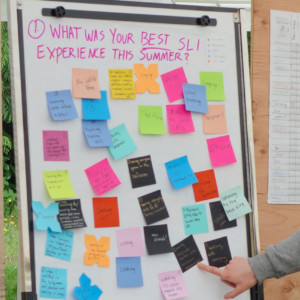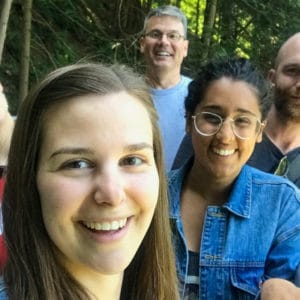What you can expect as an intern:
You will learn how to use WAYK.
One of the main purposes of the WAYK Summer Intensive is to provide a comprehensive training in WAYK skills, something that is difficult to demonstrate or even explain in a week-long workshop or a few language lessons. WAYK interns will learn all about WAYK techniques and how to wield them well in a variety of language learning and teaching situations. Interns also learn how to use the project management tools that WAYK employs to keep its projects running smoothly.
You will practice learning new languages through immersion.
Perhaps one of the most critical skills that WAYK can teach is how to acquire language through immersion interactions with fluent speakers (or sometimes just speakers that are more fluent than you are). WAYK interns are very valuable to host communities as a support to local language workers who are also learning this skill. Additionally, since many of our program participants know multiple languages, a frequent activity during our downtime is practicing using WAYK techniques to learn from each other.
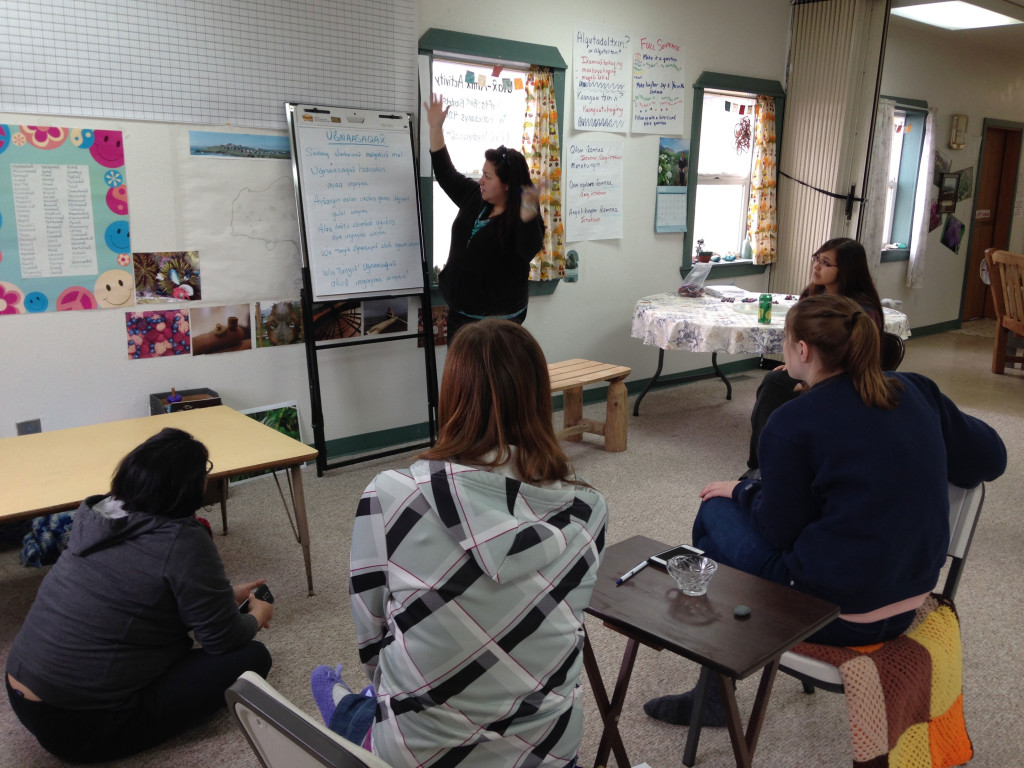
You will teach language lessons before you are fluent in the language.
A key to WAYK’s philosophy is that WAYK training prepares players to teach confidently what they know regardless of their overall level of fluency. As a member of the WAYK team, interns will practice and hone this skill by teaching the language they acquire to other members of the community language team. It is extremely helpful for all interns to teach in order to solidify their own knowledge, but, more than that, teaching is a necessary part of creating and testing lessons and enhancing the overall efficiency and effectiveness of the WAYK team. Developing good teaching strategies that will support student success is a huge part of what we do.
You will visit a place that few people get to visit.
Atka, Alaska, is a remote location that even most Alaskans never get to visit. Located in the center of the Aleutian chain, it is only accessible by air and sea. To get to Atka, we will travel first from Anchorage to Dutch Harbor (a 3-hour flight on a propeller plane—bring earplugs!), a major fishing center and the hub for travel in the central Aleutians. From “Dutch” we will fly to Atka on a small Beechcraft King Air (about a 1.5 hour flight). Flights between Atka and Dutch Harbor are operated by Grant Aviation three times a week (Mondays, Wednesdays, and Fridays), but are often canceled due to the extreme weather—particularly wind—in the Aleutians. Not only does it take a while to get to Atka, but flights are rather expensive (about $1750 per person round trip–$900 from Anchorage to Dutch Harbor, and $850 for the Atka leg of the journey).
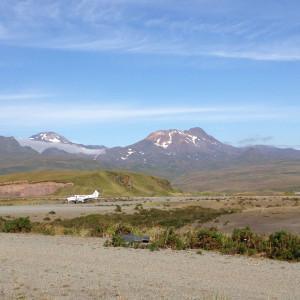
On average, summer days on Atka are mild and long with temperatures in the 40s-60s and about 17 hours of daylight in late June (Atka is on Hawaii-Aleutian Time). Mist, wind, and fog are common. In addition to about 75 people, Atka is home to lots of marine life, including sea lions, seals, halibut and salmon. The island also has a large herd of reindeer, which are part of the local subsistence diet. Atka has one large volcano (Korovin) visible from the village, and no trees, except for a few planted by soldiers who occupatied the island during World War II. Atka has one school, one post office, one health clinic (staffed by a health aide), one church (Russian Orthodox), and one small store. The island is fairly limited in terms of connectivity. Internet access is expensive and unreliable. There is no cell phone service available on the island. Atka’s isolation has certainly contributed to the longevity of the local language, however, we want anyone who applies to come to Atka to understand: it is very beautiful and very remote.
You will work hard.
Taking on a WAYK internship is a considerable endeavor. In one summer, our interns learn WAYK skills, a new language, pedagogical strategies, and how to use project management tools. Due to the nature of language learning and language revitalization projects, a significant time commitment is required. To make worthwhile progress toward our summer goals, interns need immersion exposure to the language on a daily basis for as many weeks as possible. WAYK interns work with the language team and speakers from 9:00 am – 4:30 pm, five days a week, for 11 weeks. Additionally, they are responsible for working in pairs to prepare meals for the WAYK team and completing household tasks on a rotating schedule. Our daily schedule may shift to include evening and weekend visits with fluent speakers and other events, but typically weekends will be reserved for WAYK business (like writing blogs!), downtime, “life maintenance” (laundry, grocery shopping, etc.), and learning languages from each other!
You will get Full!
Working on a language revitalization project can be both an incredibly fulfilling and an incredibly frustrating experience. Participants can get Full for many reasons: being away from home, being in an unfamiliar/isolated place, learning in a way that’s different from what they’re used to, feeling tired, hungry, overwhelmed, etc. Part of our work this summer is developing each person’s ability to tell when they themselves are Full or when others around them are Full. As a team, we will work together to try and keep our Full levels as low as possible, but we will also have downtime planned into our daily and weekly schedules to ensure that everyone gets time to relax and recuperate.
You will have a fun, unforgettable experience
A language learning experience like a WAYK Summer Intensive is certainly hard work, but it’s also so much fun. You might be surprised at the great friendships that come out of a shared experience like this one. You will get to learn and play with the WAYK method, give feedback, and help make our work even more effective in the future. And you will contribute to strengthening an endangered language and supporting new speakers, which, according to WAYK, is one of the best ways to spend a summer!
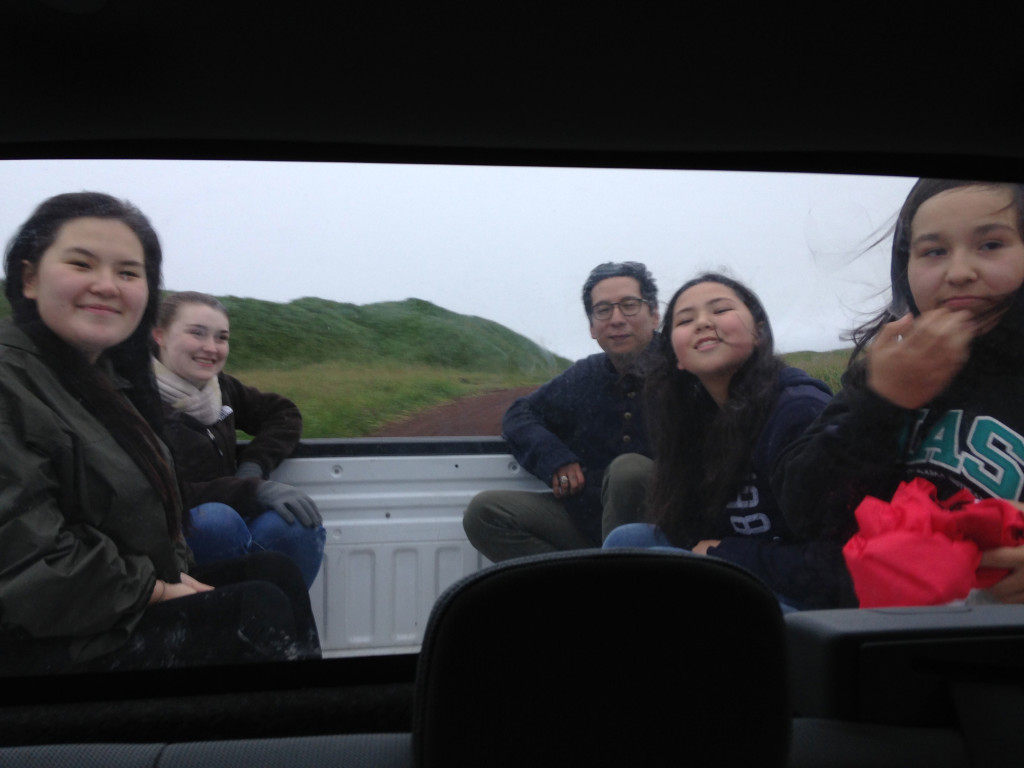
What WAYK expects from you:
You will share space thoughtfully and contribute to the collective comfort of the team.
This summer the entire WAYK team will be sharing living space and working space in Atka. Spending the summer in close quarters is great for language learning, WAYK skill building, and strategizing, but it means that everyone needs to be especially aware of their conduct and how it affects the group. It will also take our collective effort to make sure the house and office run smoothly and are free of avoidable drama. To that end:
- The WAYK house will be a “dry house,” i.e. no drugs or alcohol will be allowed on the premises. This is a hard and fast rule that we expect all interns to adhere to.
- New romantic relationships between members of the team or between the WAYK team and members of the host community are not allowed. We’ve learned from experience: If it’s a good idea now, it’ll be a great idea later! (Wait until later!)
- We expect all participants to share responsibilities when it comes to cooking, cleaning, and chores.
- Not all WAYK team members will have their own rooms. Due to limited housing availability on Atka, we will be staying in a 3 bedroom, 1 bathroom apartment (half of a duplex). It is a modern, comfortable building close to the store and the school (where will we spend a lot of our time), but it will require roommates. Whether participants are sharing a room or not, we expect everyone to be respectful of privacy, shared space, quiet hours, and the “Meadow.”
You will prioritize the language goals of the community above your own personal language goals. We expect that your primary goal is NOT to get fluent in the language.
While interns who spend an entire summer working with Niigugim Tunuu will undoubtedly reach some level of proficiency in the language, we need to be clear that this is really a means to an end. At WAYK we have an anti-TQ (i.e. a behavior to avoid) called “Trophy Hunting,” which refers to the idea of people learning another language just for the sake of saying they are fluent in it. There are lots of people who can speak a ridiculous number of languages, but have never used their knowledge to create another fluent speaker.
Our mission is entirely different. We have been invited to support the local and regional language team in their quest for fluency, in an effort to build further language learning and teaching capacity in the region. In short: it’s not about us.
This can be especially difficult, because often the people who make great WAYK interns (outsiders without an emotional connection to the language, who have experience learning multiple languages already) will be able to learn a new language very easily and quickly. But even if someone has the ability to learn a language quickly, it doesn’t always mean that they should. It’s more important to support local learners who might be inhibited by the pressure they feel to become fluent. When revitalizing a language it’s important to create new speakers, but equally important that those new speakers are part of a local, sustained effort to keep the language vital.
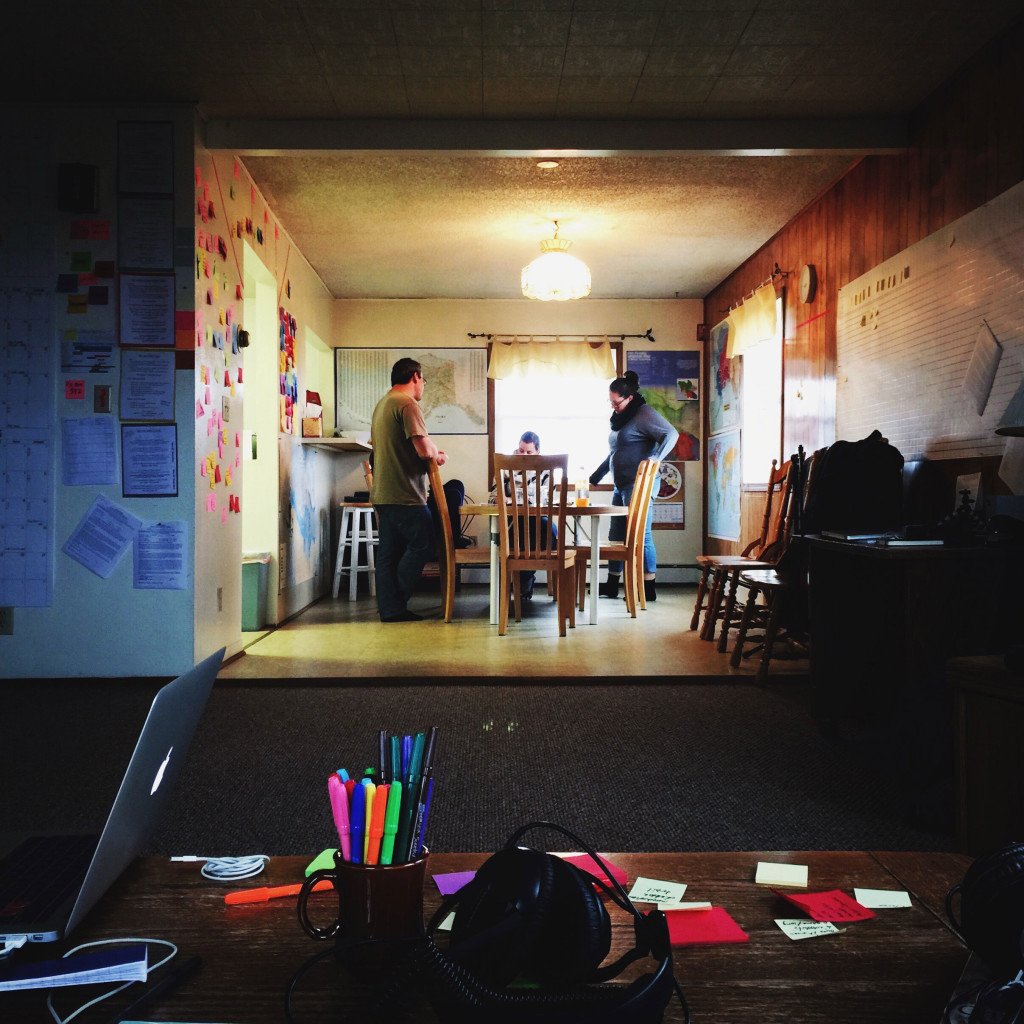
You will NOT engage in behavior that could be distracting or detrimental to the project.
It is hard to anticipate what exact behavior will become problematic in the future. But we can say that we will be visitors on the island, and we don’t want to wear out our welcome. Ongoing discussions of cultural protocol and our relationship with the community will be included in the orientation and throughout the project. In the meantime, here are a few examples:
- This is not the time or venue to debate political issues such as global warming, offshore drilling, marriage equality, or the legalization of marijuana. Our job is to get the community fluent enough to have such discussions in the language after we’ve left.
- We need to be mindful about publicizing the language and the project through social media or other means without explicit permission from community members.
- We also need to avoid making the assumption that everyone should feel obligated to learn their heritage language. Many people don’t, and it’s not our job to judge or argue with them.
Please note: Although interns are volunteering their time, the host community will be paying for their transportation, lodging, and food. This amounts to thousands of dollars per intern for the summer. Additionally, the conduct of the WAYK interns reflects on our organization and can affect our relationships with future partner communities. Because of this, all WAYK interns will be held to the highest standards of integrity and trust. As a team, our first priority must be to the language and the host community, and if there is a situation where this priority is not respected, it is possible that a participant will be asked to leave the program early, no questions asked.
We hope that these expectations answer any questions you might have if you’re considering a summer internship. If you have further questions, please email us. Click here to start your application!


